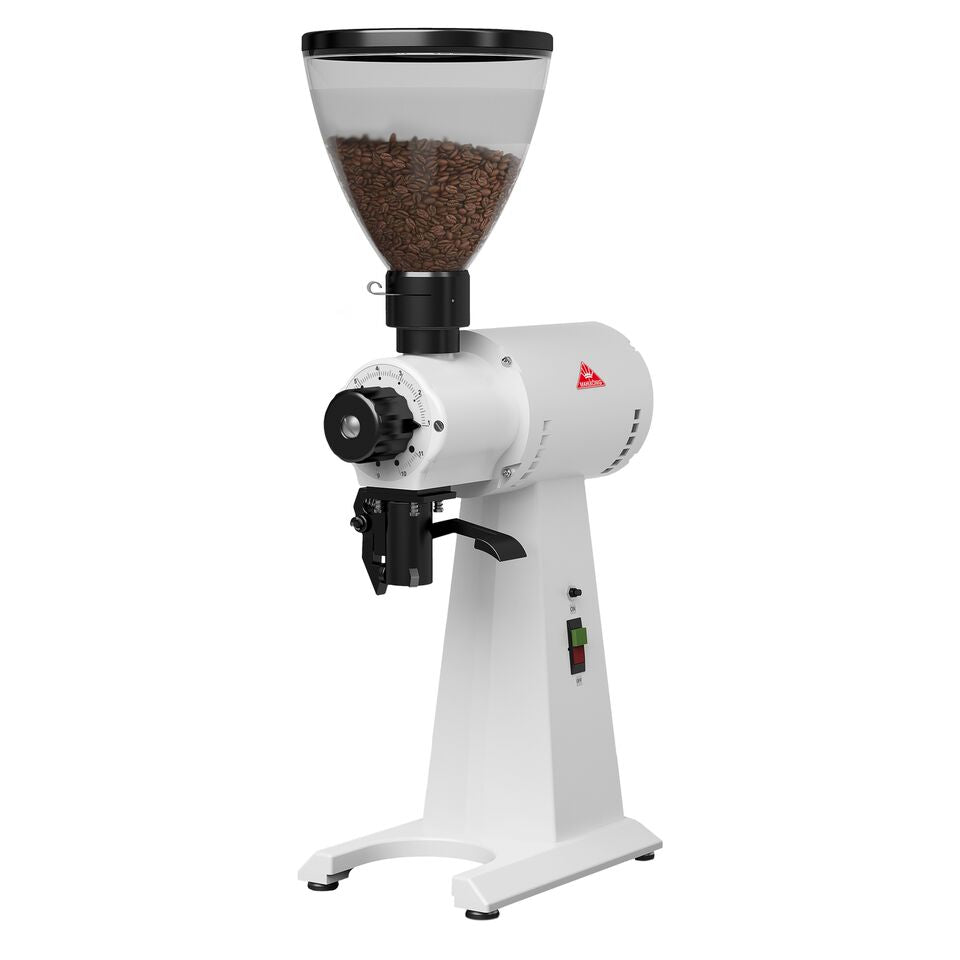Industrial Coffee Grinder Selection Guide for Professional Baristas
Industrial Coffee Grinder Selection Guide for Professional Baristas
Blog Article
Industrial Coffee Grinder Guide: Boost Effectiveness and Quality
In the competitive landscape of coffee production, picking the best industrial coffee grinder plays a pivotal duty in boosting both effectiveness and product high quality. Recognizing the nuances of various grinder types and essential functions-- such as adjustable work setups and robust construction-- can dramatically affect the last taste profile of the coffee.
Comprehending Grinder Kinds
When picking a commercial coffee mill, recognizing the various kinds available is important for maximizing both flavor extraction and functional effectiveness. Both primary sorts of mills are blade grinders and burr mills. Blade mills utilize sharp blades that chop coffee beans right into irregular dimensions, causing uneven extraction and possibly unwanted tastes. While blade grinders are commonly much more affordable and suitable for small procedures, they are normally not suggested for commercial usage.

Eventually, choosing the best sort of mill is important to preserving high quality and performance in coffee production, making it vital for organizations to invest in top notch burr mills for ideal results.
Trick Attributes to Take Into Consideration
Selecting a commercial coffee mill requires mindful factor to consider of a number of essential attributes that can substantially influence both efficiency and the general coffee experience. Among the key elements to examine is the grinding mechanism. Burr mills are usually preferred over blade mills, as they offer a constant grind size, which is critical for optimum extraction and flavor.
An additional essential attribute is the mill's ability. A flexible mill with numerous setups allows you to tailor the grind dimension to different developing techniques, improving the coffee's flavor account.
Examine the grinder's sound degree, specifically in a busy café or production atmosphere, where excessive sound can be turbulent. Investing in a grinder that stabilizes these features can considerably enhance both operational performance and the high quality of the coffee offered.
Optimizing Grinding Process
To accomplish the ideal outcomes in coffee preparation, enhancing the grinding procedure is vital. The work size dramatically influences removal, flavor, and overall quality of the made coffee.


Additionally, checking the grinding rate can maximize the procedure. Slower grinding commonly generates much less warm, maintaining fragile tastes and aromas. On the other hand, much faster grinding may create excessive warm, adversely influencing the coffee's high quality.
Maintenance and Care Tips
Proper upkeep and treatment of commercial coffee grinders are important for making sure optimal efficiency and longevity. Normal cleaning is the structure of maintenance; residue build-up can impact flavor and grinding efficiency. It is a good idea to cleanse the mill after each use, cleaning down the outside and getting rid of any type of coffee premises from the burrs.
In addition, inspect the grinding burrs for damage. Boring burrs can compromise grind consistency, so they need to be changed as needed. Industrial Coffee Grinder. Periodically adjusting the mill is likewise vital, as this keeps the preferred grind size for various brewing techniques
Lubrication of moving components need to be done according to the producer's specifications, as this decreases rubbing and extends the life of the equipment. It is important to make use of food-grade lubes to make certain security and compliance with wellness policies.
Lastly, maintain the grinder in a secure and dry atmosphere to stop corrosion and corrosion. By adhering to these upkeep and care suggestions, operators can improve the effectiveness of their industrial coffee mills while ensuring top notch result and prolonged learn the facts here now operational life.
Roi Analysis
Reviewing the roi (ROI) for industrial coffee mills is essential for companies looking for to enhance their coffee production capacities. A thorough ROI evaluation helps determine the economic feasibility of buying high-quality grinders, enabling businesses to weigh the first costs versus potential gains.
To conduct an extensive ROI evaluation, businesses should take into consideration a number of crucial variables. Examine the purchase price of the grinder, including installment and any type of necessary alterations to existing framework. Next off, compute operational expenses, including energy intake, upkeep expenditures, and labor performance enhancements. High-performance mills frequently lead to decreased grinding time and enhanced throughput, which can substantially enhance performance.
In addition, take into consideration the influence on item top quality. Industrial Coffee Grinder. Superior mills yield a more constant grind dimension, which can enhance flavor profiles and customer complete satisfaction, ultimately driving sales. By boosting the high quality of the end product, services can justify higher prices, bring about raised income
Verdict
In recap, a commercial coffee grinder plays a critical role in improving both efficiency and product top quality within coffee manufacturing. By selecting high-grade burr mills geared up with essential features such as adjustable work settings and durable building, businesses can ensure optimal taste extraction. In addition, normal maintenance is essential for sustaining mill efficiency and maximizing consumer complete satisfaction. Eventually, the critical financial investment in a trusted grinder contributes considerably to boosted income and competitiveness in the coffee sector.
In the competitive landscape of coffee manufacturing, selecting the appropriate industrial coffee mill plays a pivotal function in improving both effectiveness and item high quality. The 2 key types of mills are blade grinders and burr grinders. Within the burr grinder category, there are level burr mills and conelike burr mills, each with its benefits. Burr grinders are generally preferred over blade mills, as they give a constant grind dimension, which is important for ideal extraction and taste.
In recap, an industrial coffee mill plays a pivotal duty in enhancing both effectiveness and product quality Click This Link within coffee manufacturing.
Report this page